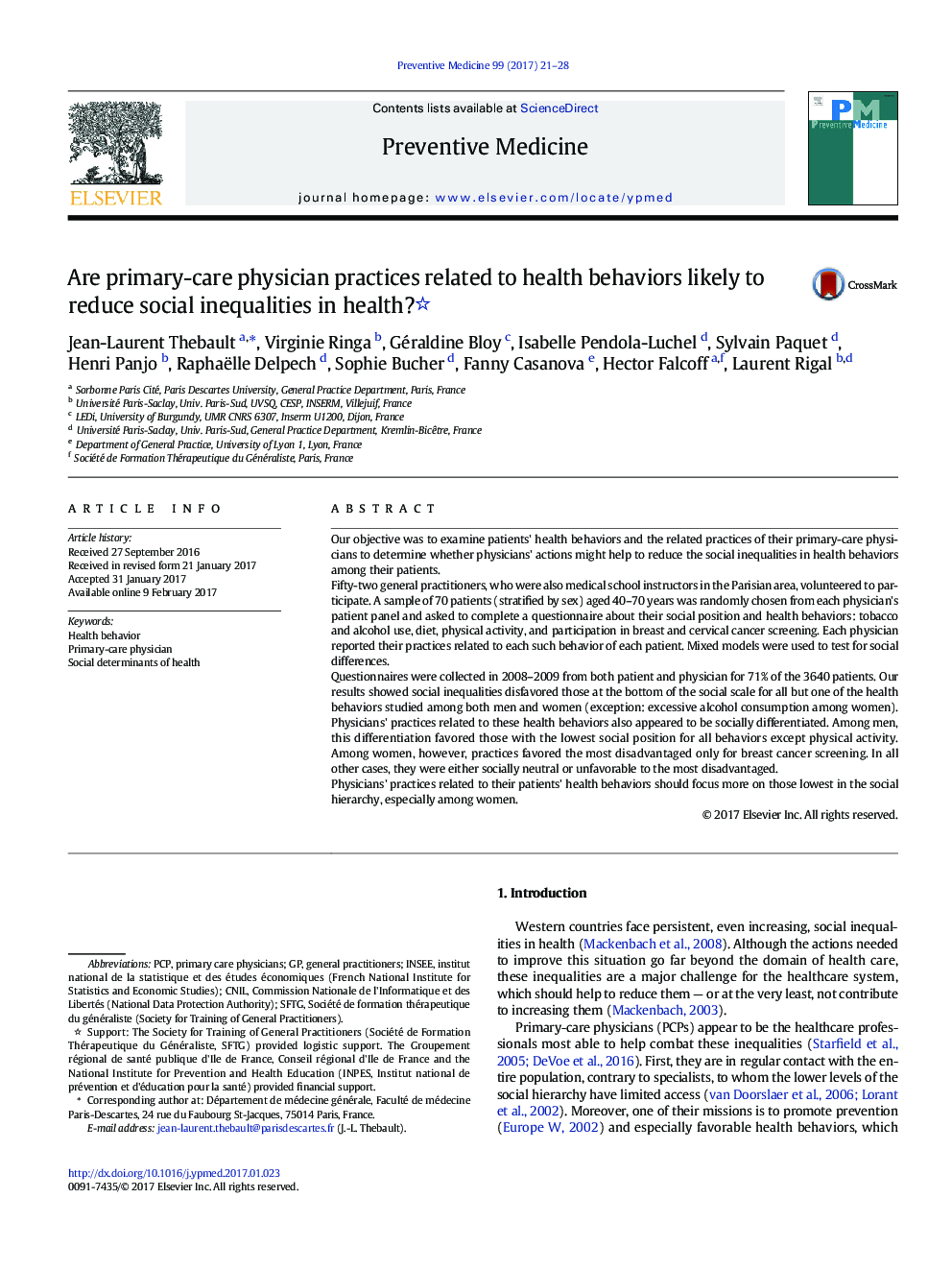| کد مقاله | کد نشریه | سال انتشار | مقاله انگلیسی | نسخه تمام متن |
|---|---|---|---|---|
| 5635659 | 1581615 | 2017 | 8 صفحه PDF | دانلود رایگان |
- Healthy behaviors are systematically less frequent at the bottom of the social scale.
- Primary care physicians should play a key role to address these behaviors.
- They do not always act in the direction of reducing social inequalities.
- Physicians' practices are more unfavorable to disadvantaged women.
Our objective was to examine patients' health behaviors and the related practices of their primary-care physicians to determine whether physicians' actions might help to reduce the social inequalities in health behaviors among their patients.Fifty-two general practitioners, who were also medical school instructors in the Parisian area, volunteered to participate. A sample of 70 patients (stratified by sex) aged 40-70Â years was randomly chosen from each physician's patient panel and asked to complete a questionnaire about their social position and health behaviors: tobacco and alcohol use, diet, physical activity, and participation in breast and cervical cancer screening. Each physician reported their practices related to each such behavior of each patient. Mixed models were used to test for social differences.Questionnaires were collected in 2008-2009 from both patient and physician for 71% of the 3640 patients. Our results showed social inequalities disfavored those at the bottom of the social scale for all but one of the health behaviors studied among both men and women (exception: excessive alcohol consumption among women). Physicians' practices related to these health behaviors also appeared to be socially differentiated. Among men, this differentiation favored those with the lowest social position for all behaviors except physical activity. Among women, however, practices favored the most disadvantaged only for breast cancer screening. In all other cases, they were either socially neutral or unfavorable to the most disadvantaged.Physicians' practices related to their patients' health behaviors should focus more on those lowest in the social hierarchy, especially among women.
Journal: Preventive Medicine - Volume 99, June 2017, Pages 21-28
